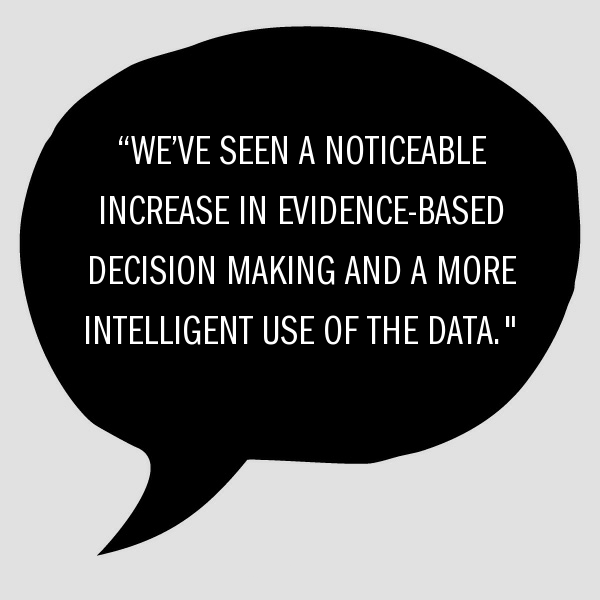
Centrally located on the coast of southern England, West Sussex has around 750,000 residents. The County Council provides services for people and businesses across a multitude of vibrant and varied cities, towns, villages and parishes.
West Sussex County Council relies on up to date information and accurate community analysis to effectively plan and deliver services. Before using Local Insight, West Sussex County Council lacked an easy way to access place-based data, and found that community profiling was much more labour intensive. Gathering information required finding individual data sets from different sources and then having to pull it all together and analyse it. It then took additional time to add commentary to that analysis.
The Council formed its Insight Team in 2009, and decided to take a more corporate view, looking at West Sussex and the County Council as whole entities. As a result, the team knew they needed to analyse data based on both geographies and a wide range of subjects. With fewer staff and less budget, they also needed a solution that would speed up the data gathering and analysis process, and make it easier. They identified OCSI’s Local Insight as the tool that provided those solutions. “We were getting on with what we had always done, but once we saw what was available we knew it was going to be a great tool,” says Neil Thomas (Principal Insight Analyst).
Getting started with Local Insight began with an interactive training session, where staff could have Local Insight on their own laptops and test it for themselves. “The staff really like it,” says Neil, “We’ve seen a big uptake in the use of our data profiles, which are now being used by Cabinet Members, the corporate leadership team, directors and executive directors.”
Local Insight takes away the onus of data collection and aggregation; saving time and freeing up analysts to get on with their central role. Neil adds, “In hindsight, you can see how much time it was taking for the analysts to crunch data that we don’t need to do now. We can allow staff in our services to self-serve.” Automated reporting within Local Insight has also been a real timesaver for the team at West Sussex. “In the past it would have taken about a day to write the commentary on a specific topic, now it is virtually instant,” says Sue Cooper (Economic Data Analyst). Even more importantly, the tool pulls everything into one process and gets people into the mind-set of thinking in a place-based way. 
Use of the tool has been particularly beneficial to the Council’s Think Family team (who coordinate the national Troubled Families programme in West Sussex). District Councils work with the County Council to nominate areas within their jurisdiction that are considered to be ‘Think Family’ areas.
Through use of the Local Insight tool, the Think Family team can define their neighbourhoods based upon boundaries that reflect what is happening on the ground – rather than standard statistical boundaries. They are able to identify and gather data from key neighbourhoods in the County and generate a report for each one. Neil adds, “The bespoke function is something everyone appreciates – we can simply draw a boundary and generate a report – it’s never been that simple.” These can be refreshed regularly and used in their own data reporting, so it’s all embedded into their processes. “Some of the information gleaned from Local Insight reports actually made Districts rethink their approach and revisit some of the boundaries,” explains Neil.
The data and reporting is then used to monitor performance on the families involved within the programme. “The tool gives us that extra flavour and helps us understand the background and why they are facing the challenges they are – the data can inform that – this adds an extra dimension to the Think Family team’s work,”
The Council believes that going forwards, Local Insight will support an ongoing culture shift towards more ingrained evidence based decision making and encourage “self-serve” of data in teams right across the organisation. “We have pushed it out to users within the Council but there is more to do. A major piece of work will be to roll it out to elected representatives,” explains Neil. Local Insight will form an integral part of encouraging elected Members to use digital for evidence based decision making.
Neil concludes; “We’ve seen a noticeable increase in evidence-based decision making and a more intelligent use of the data. It’s made our business more modern and has revamped the way we work. I’d have no hesitation in saying I think it is brilliant. It really helps, for a relatively small outlay, compared to the benefits you can get back.
Want to find out how Local Insight can boost the capacity of your team? Start a free trial of Local Insight now.
London is often characterised as a city of wealth and opportunity, yet…
More
The Welsh Index of Multiple Deprivation (WIMD) is the official measure of…
More